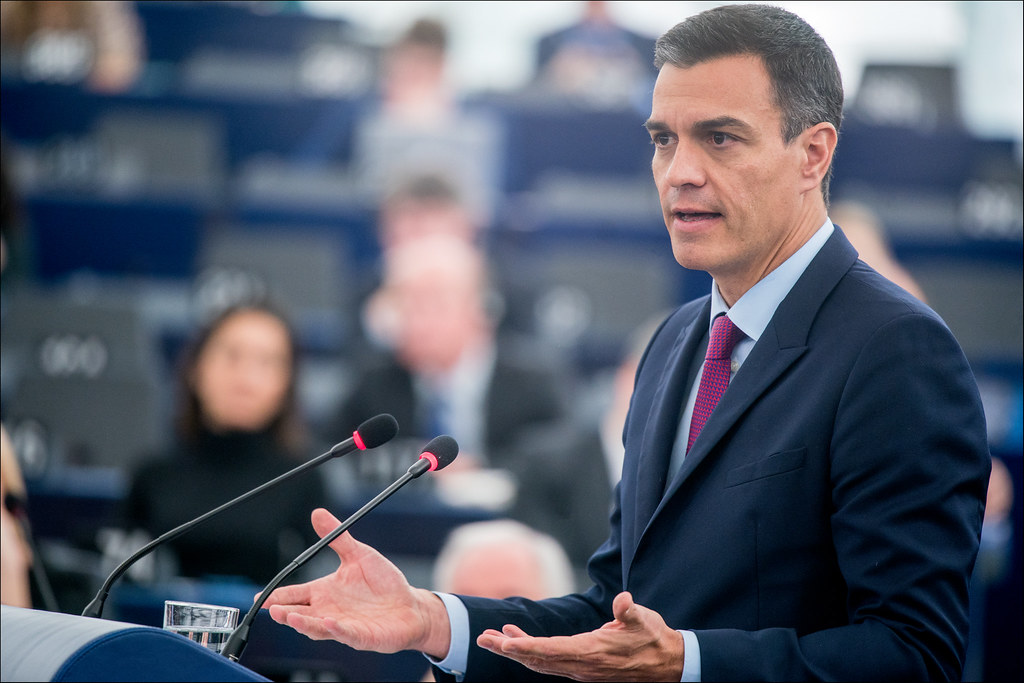Why Spain thinks not to use Recovery Fund loans

All Spain's projects on the Recovery fund according to the Spanish newspaper El Pais
The Spanish government seems willing to accept 72.7 billion in non-repayable direct aid from the European Union Recovery Fund, giving up, at least in the short term, the nearly 70 billion in loans.
This was revealed by the newspaper "El Pais" which consulted sources from Moncloa (seat of the government presidency) and the Ministry of Economy, writes Agenzia Nova .
The European Commission allows loans to be taken out until July 2023 and, therefore, the executive seems oriented to ask for them “if we need them for the period 2024-2026 to reduce the growth of public debt. A line that could also be adopted by other countries such as Portugal, Italy and France.
As highlighted by the Spanish newspaper, the unclear conditionality associated with funds continues to be a deterrent, as well as the suspicion that sooner or later Brussels will ask again for adjustments to countries that have a "skyrocketing debt" of over 100 percent of GDP. .
"There is less incentive to borrow if countries issue debt at very low interest rates" since "the real risk is that the European macro-stimulus is much lower than what was agreed in July and this blurs the economic outlook ", Said Lorenzo Codogno, former general manager at the Treasury Department of the Italian Ministry of Economy and Finance and former chief economist at the Mef.
+++
EXTRACT FROM THE FOREIGN PRESS REVIEW BY EPR:
Pedro Sanchez's government, writes El Pais , will only short-term community grants
"It's a great deal: we have reached 140 billion for Spain, 72.7 billion in transfers", announced President Pedro Sánchez after the July summit in Brussels, where a 750 billion bazooka was agreed to get the economy out. covid-induced coma.
But in the end it is very likely that Spain will never reach the 140 billion figure. The executive for the moment renounces almost half of that figure, the sources of La Moncloa and the Economy confirm: it claims direct non-repayable aid, but will not ask – at least in the short term – the almost 70,000 million loans.
Basically Spain already wants, for 2021-2023, the transfers that do not have to be repaid, but refuses to ask now for the credits – which ultimately mean more debts – associated with European funds. “The European Commission allows us to take out loans until July 2023. What do we gain by asking for them now? We will do it, if we need it, for the period 2024-2026 ”, admit government sources.
Spain is not the only country that is tempted: Portugal and Italy are in the same boat, and France may also consider giving up some of the funds it is entitled to through credits.
There are good reasons for this.
One: the European Central Bank's ( ECB ) multi-million dollar purchases have minimized the interest rates that all countries pay on their debt; Spanish and Italian treasuries this week issued negative interest bonds – in silver: they charge the debt – so the incentives to borrow from the EU, however cheap, are reduced.
Two: the foggy conditionality associated with funds continues to be a deterrent, as well as the suspicion that sooner or later Brussels will ask for adjustments again from countries that have skyrocketing debt (and across the South the public debt is above 100% of GDP). And three: it's not even clear that capital has the administrative capacity to spend all that money. So Spain and other countries are hoarding themselves at the mercy of non-repayable aid, not resorting to loans.
Portuguese Prime Minister António Costa has publicly stated that he is giving up the loans to which he is entitled: he is asking for direct aid but will ask for credits only if strictly necessary. Sánchez and his government have been less explicit, but in the preliminary version of the Recovery Plan sent to Brussels last week it is clear that Spain will also ask for all direct transfers and, for the time being, not a single cent in loans.
The Ministry of Economy clarifies that for the moment there are only plans for 2021-2023, and that the transfers are sufficient; the rest is to be determined. Moncloa points out that Spain starts with non-repayable aid for the next three years and adds that there will be time to apply for loans (up to 67,300 million) if necessary. The 140,000 million would allow a fiscal recovery equal to 11.2% of GDP. If this derogation were confirmed, the stimulus from the EU would be limited to 5.8% in six years.
This is a machine translation from Italian language of a post published on Start Magazine at the URL https://www.startmag.it/mondo/perche-la-spagna-pensa-di-non-ricorrere-ai-prestiti-del-recovery-fund/ on Mon, 19 Oct 2020 14:37:08 +0000.
